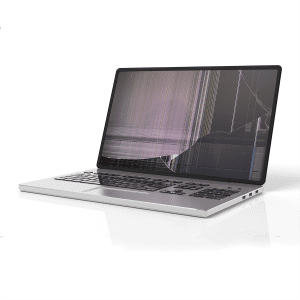You’re Just Using Me For My Services
In forensics, one of the recurring themes we note when talking to professionals – both in the electronic evidence field and in other professions – is the calculus between client sophistication as a consumer of their profession and the quality of the service they can provide.
It’s not unusual for us to get a call from an attorney directing us to perform a specific task in a specific manner. When the client knows (i) exactly what they’re asking for and (ii) exactly what they will get back, everyone is happy. The challenge comes when what they’re asking for won’t result in what they want. Too often, this is because the client wrongly believes he is asking the right question or using the right methodology to attain his goal. Nearly every attorney is aware of electronic evidence, but often only casually so.
For example, let’s say someone is facing discovery in a lawsuit. Counsel recalls a continuing education seminar from the previous year talking about “deleted isn’t really deleted” and something about “how to use keywords effectively.” Before you know it, he’s drafted and negotiated an entire discovery plan without help. And by the time we’re involved, it’s an agreed Order signed by a judge. And it stinks.
Having some familiarity with a skillset and its complexities, and recognizing (i) one’s own relative inexperience and (ii) the consequences of making mistakes, are the things that drive a person to use professionals in the first place.
A colleague recently related a story that illustrates the above perfectly. His front lawn had begun to look a little shabby and he told his wife they needed to do something about it. “We’re not going to spend a bunch of money on a landscaper for such a simple job!” she replied. After a lot of digging and scraping, there was an uneven, ragged trench in the yard. Realizing that some DIY had made it worse, they called a landscaper, who fixed the problem and exceeded their expectations in the process. They underestimated the difficulty of the project and the degree of skill necessary to complete it. The cost of hiring someone seemed prohibitive because of this miscalculation. When they saw the situation more clearly, they realized the cost-benefit worked out in their favor.
It seems that when a client is aware of the limits of their knowledge, they accept a professional’s expertise much more readily. Another good example is a surgeon – most of us would never think to perform our own surgery on a loved one because we are aware of our ignorance of medicine and the potentially fatal repercussions of any mistake.
When we are deeply knowledgeable about a subject, even though it may not be our profession, we lean to the other side of the equation. There are a great many people that repair their own cars, for example, while not being certified auto mechanics.
It is the middle ground – when we have a casual familiarity with a subject – where the danger lies. We overestimate our skills and underestimate the project, leading to disaster. Even having faced disaster, we feel as if we have learned enough from our mistake to avoid making another. This new enlightenment isn’t enough to clear the hurdle and we end up in another disaster.
The key is for professionals to accurately assess the sophistication level of the client and then to inform without offending. Clarify their desired objective and propose the methodology you think is best to achieve it. Find out what they want and then tell them what they need.







